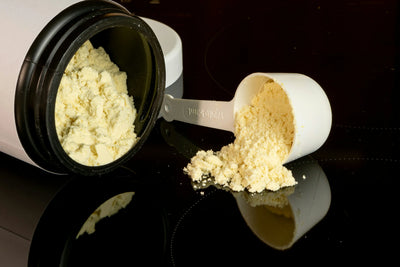Introduction
As a dog owner, it is always heartbreaking to see a beloved fur child in pain due to injury, surgery or chronic illness. Dogs don't express pain verbally, but their trembling bodies, shriveled demeanor, or muffled whimpers all speak to us of discomfort. Fortunately, advances in modern medicine and science have provided us with a variety of gentle but effective pain relief methods to help dogs relieve their pain and regain their vigor and happiness. In this article, we'll detail veterinarian-approved pain relief options, including medications, natural remedies, and practical advice for daily care, so you can provide all-around care for your beloved pet.
Gentle & Effective Pain Relief for Your Dog
1. Drug Pain Relief: A Safe and Effective Option
When dogs are in pain, drug treatment is often the first choice for veterinarians because it can quickly and precisely relieve discomfort. However, any medication must be used under the guidance of a veterinarian to ensure safety and efficacy. Here are several common pain-relieving drugs and their applicable scenarios:
(1) Non-steroidal anti-inflammatory drugs (NSAIDs)
Non-steroidal anti-inflammatory drugs are a common choice for treating mild to moderate pain in dogs, especially suitable for conditions such as arthritis, post-operative recovery, or muscle strains. These drugs relieve pain by reducing inflammation. Common ones include meloxicam, carprofen, and aspirin.

Meloxicam: Highly regarded for its excellent anti-inflammatory and analgesic effects, it has relatively few side effects and is suitable for long-term management of chronic pain, such as arthritis. Many veterinarians choose it as their first option because it has a milder impact on dogs' gastrointestinal tracts.
Carprofen: It is suitable for acute pain and inflammation, takes effect quickly, and can significantly improve the dog's comfort within a short time. However, dose control is crucial, as an overdose may cause gastrointestinal discomfort.
Aspirin: Although it can be used for pain relief in some cases, it has a strong irritant effect on a dog's gastrointestinal tract. Long-term or excessive use may lead to gastric ulcers. Therefore, it must be used with caution under the strict guidance of a veterinarian.
(2) Opioid drugs
For more severe pain, such as that caused by fractures, major surgeries, or advanced cancer, veterinarians may prescribe opioid drugs, such as morphine or fentanyl. These drugs have a powerful pain-relieving effect and can quickly alleviate the intense discomfort of dogs. However, they may cause side effects such as drowsiness, decreased appetite, or respiratory depression, so they are usually only used for short-term treatment and require close monitoring.
(3) Other supportive medications
Apart from NSAIDs and opioid drugs, there are also some medications that can exert unique effects under specific circumstances:
Gabapentin: Particularly suitable for neuropathic pain, such as pain caused by herniated discs or nerve damage. It can effectively relieve nerve hypersensitivity, making dogs feel more comfortable.
Glucosamine and chondroitin: Although mainly used to support joint health, they can also indirectly relieve the pain caused by arthritis by improving joint lubrication and reducing inflammation.
2. Natural Therapy: A Gentle and Natural Way of Relaxation
For owners who wish to reduce their dog's reliance on medication or seek a gentler pain relief method, natural remedies are an excellent choice. These approaches not only effectively alleviate pain but also enhance the overall health of the dog.
(1) Cold Compress and Hot Compress
Cold compresses and hot compresses are simple and effective physical therapies that are suitable for various types of pain:
Cold compress: Suitable for acute injuries such as sprains, bumps, or post-operative swelling. Place an ice pack or cold compress bag gently on the affected area, for 15-20 minutes each time, 3-4 times a day. Cold compress can quickly reduce inflammation and swelling, and relieve acute pain.
Heat therapy: More suitable for chronic pain conditions such as arthritis or long-term muscle stiffness. Apply a warm towel or hot water bag to the affected area for 15-20 minutes, 2-3 times a day. Heat therapy can enhance blood circulation, relax muscles, and provide long-lasting comfort.
(2) Massage and Physical Therapy
A gentle massage not only helps relieve the muscle tension of your dog, but also strengthens the emotional bond between you and your pet. Start from the dog's head and move slowly along its back, gently kneading the muscles, avoiding areas that are injured or sensitive. The massage can enhance blood circulation, alleviate mild pain, and make the dog feel relaxed and loved.
A more professional option is physical therapy, such as hydrotherapy or electrical stimulation. These treatments need to be carried out under the guidance of a veterinarian or a professional rehabilitationist, and they can significantly improve a dog's mobility and comfort, especially for post-operative recovery or chronic joint diseases.
(3) Natural Supplements
Some natural supplements have gained increasing popularity among dog owners in recent years due to their anti-inflammatory and soothing effects:
Fish oil: Rich in Omega-3 fatty acids, it has a powerful anti-inflammatory effect and is particularly suitable for alleviating chronic pain conditions such as arthritis. Choose high-quality pet-specific fish oil to ensure safety and effectiveness.
Curcumin: As a natural anti-inflammatory and antioxidant, curcumin can effectively alleviate inflammation and pain, and is particularly suitable for joint problems in senior dogs.
CBD Oil: In recent years, CBD oil has gained attention for its calming and pain-relieving effects, making it particularly suitable for dogs suffering from anxiety or chronic pain. However, before use, it is essential to consult a veterinarian to ensure the correct dosage and product quality safety.
3. Daily Care: Starting from the Details, Preventing and Alleviating Pain
Apart from medication and natural remedies, meticulous care in daily life can also significantly improve pain management for dogs. Here are some practical suggestions:
(1) Control weight and reduce joint burden
Being overweight is one of the common causes of joint and muscle pain in dogs. Excessive weight puts more pressure on the joints, worsening conditions such as arthritis or hip dysplasia. By providing a balanced diet and appropriate exercise (such as short walks or water activities), you can help your dog maintain a healthy weight. This not only reduces pain but also boosts overall vitality.
(2) Creating a comfortable living environment
Provide dogs with soft and supportive mattresses to prevent them from lying on hard surfaces for long periods of time. This is particularly important for alleviating joint pain. In cold weather, keep the environment warm to prevent the dogs from getting cold, which can also effectively reduce muscle and joint discomfort.
(3) Regular health check-ups
Pain is often a sign of underlying health problems, such as dental diseases, arthritis or tumors. Regularly taking your dog to the veterinarian for a comprehensive check-up can help detect and treat these issues in time, preventing the pain from worsening further.
4. Safeguarding the Health of Dogs with Love and Science
Each dog is an indispensable member of the family, and their pain can touch our hearts. Relieving a dog's pain requires comprehensive consideration of the cause, severity of the pain, and the dog's overall health condition. Medication can quickly alleviate acute pain, but it should be used with caution under the guidance of a veterinarian; natural remedies and daily care provide gentle and sustainable solutions for long-term pain management. Through scientific methods and meticulous care, we can not only help dogs get rid of the pain but also allow them to regain the joy of running and playing. May every dog enjoy a healthy, comfortable and happy life under the love of its owner!
Beyond Diet: Natural Support for Canine Inflammation
1. Natural Anti-Inflammatory Foods: Start Protecting Your Health with Your Meals
A quality diet is the first step in helping dogs fight inflammation. Choosing foods rich in anti-inflammatory components not only helps alleviate inflammation but also enhances the overall health of dogs. Here are several particularly suitable natural anti-inflammatory foods:
(1) Foods rich in Omega-3
Omega-3 fatty acids are hailed as the "superheroes of anti-inflammation". They can effectively reduce the production of inflammatory molecules in the body, and significantly improve inflammatory problems such as arthritis, skin itching or allergies. Here are some sources of Omega-3 suitable for dogs:
Deep-sea fish: Salmon, mackerel and sardines are rich in EPA and DHA, and are the main sources of Omega-3. You can chop the cooked fish meat and add it in moderation to the dog food, or use it as a healthy snack once a week. Make sure to remove the bones and ensure the fish is fresh. Avoid frying or seasoning.
Plant-based options: For dogs that are allergic to fish, flaxseed oil or chia seeds are good alternatives. Add a small amount to the food, which can provide anti-inflammatory effects without irritating the stomach.
(2) Foods rich in antioxidants
Antioxidants are the natural guardians that combat free radicals, reduce cellular damage and inflammation, and also support a dog's immune system. Here are some antioxidant foods suitable for dogs:
Blueberries: This small fruit is rich in vitamin C and K, as well as various antioxidants, and can effectively reduce inflammation. Feeding your dog a few blueberries every day as a tasty snack not only tastes good but also provides health benefits for your pet.
Spinach: Rich in iron, magnesium and antioxidants, spinach is beneficial for the overall health of dogs. After being steamed and chopped, a small amount can be mixed into the dog's food to help alleviate inflammation.
Sweet Potato: Rich in beta-carotene, sweet potatoes not only reduce inflammation but also support the eye health of dogs. After being cooked, mash it into a puree and add it to the diet in appropriate amounts. Dogs usually love its sweet taste.
(3) High-quality Lean Protein
Protein is crucial for maintaining a dog's muscle strength and overall health. However, it is particularly important to choose low-fat and high-quality protein sources to avoid exacerbating inflammation:
Chicken: Skinless and boneless chicken breast is an economical and easily digestible option, suitable for most dogs.
Turkey: Low in fat and mild in nature, it is particularly suitable for dogs with sensitive stomachs. It can provide sufficient protein without causing inflammation.
Fish: Such as cod or halibut, not only are they rich in Omega-3, but also provide high-quality protein. They are an ideal choice for an anti-inflammatory diet.
2. Natural Anti-Inflammatory Supplements: Adding Value to Your Health
Apart from food, natural supplements can provide additional support for managing inflammation in dogs. These supplements are gentle yet effective and can be used over a long period. However, before use, it is essential to consult a veterinarian to ensure they are suitable for your dog's specific health condition.
(1) Turmeric
The active ingredient in turmeric, curcumin, is renowned for its powerful anti-inflammatory and antioxidant properties, and is particularly effective in alleviating arthritis or skin inflammation. To enhance absorption, it is recommended to mix turmeric powder with coconut oil and a small amount of black pepper. For example, you can make your own turmeric paste: combine 1/4 cup of turmeric powder, 1/2 cup of coconut oil, and 1/2 teaspoon of black pepper, heat and stir until well mixed, then refrigerate and store. Add a small amount (adjust according to the dog's weight) to the food every day, which is both safe and delicious.
(2) Fish Oil
Fish oil is a concentrated source of Omega-3 fatty acids, which can quickly reduce inflammation. It is especially suitable for dogs with arthritis or allergic skin diseases. Choose high-quality fish oil specially designed for pets, make sure it does not contain additives, and add it according to the dosage recommended by the veterinarian to avoid excessive intake which may cause digestive discomfort.
(3) Probiotics
A healthy gut is the key to overall anti-inflammatory response. Probiotics can balance the intestinal microbiota, reduce intestinal inflammation, improve digestive function, and thereby indirectly alleviate systemic inflammation. When choosing a probiotic product for dogs, prioritize those that contain a high number of viable bacteria (hundreds of millions of CFU), multiple strains, and have enteric coating to ensure that the probiotics can reach the intestines and function properly.
(4) Other natural anti-inflammatory agents
Ginger: Ginger has a mild anti-inflammatory property and can alleviate arthritis or digestive tract inflammation. A small amount of ground ginger mixed into the food can provide a soothing effect for dogs.
Papain: This enzyme found in pineapples has anti-inflammatory properties and is suitable for mild inflammation or post-operative recovery. A small amount of fresh pineapple (avoid canned pineapple with excessive sugar) can be consumed.
CBD Oil: Cannabidiol (CBD) has gained significant attention in recent years due to its anti-inflammatory and calming effects, making it particularly suitable for dogs with chronic inflammation or anxiety-related issues. However, it is essential to choose CBD oil that is THC-free and specially designed for pets, and strictly follow the dosage recommendations provided by the veterinarian.
3. Lifestyle Adjustment: Optimizing Health Through Small Details
Apart from diet and supplements, lifestyle adjustments can also significantly reduce inflammation in dogs and create a more comfortable living environment for them.

(1) Increase dietary fiber
Dietary fiber not only improves digestion, but also reduces inflammation by regulating intestinal health. Suitable sources of fiber for dogs include:
Plantago asiatica: A mild fiber supplement that can stimulate intestinal peristalsis and alleviate intestinal inflammation.
Green bananas: Rich in resistant starch, beneficial for intestinal health.
Inulin: A natural prebiotic that supports the growth of beneficial bacteria and enhances anti-inflammatory effects.
(2) Maintain a healthy weight
Being overweight will increase the burden on joints and muscles, leading to more severe inflammation. By adopting a reasonable diet control and engaging in appropriate exercises (such as short-distance walks or water activities every day), it is possible to help dogs maintain their ideal weight. This not only reduces inflammation but also enhances their overall vitality.
(3) Create a comfortable environment
Provide dogs with soft and supportive mattresses to prevent them from lying on hard surfaces for long periods. This is particularly important for alleviating arthritis or muscle inflammation. In cold weather, keep the indoor temperature warm to prevent the dogs from getting cold, which can also reduce the pain caused by inflammation.
Noora Calming Health Supplement
4. Light up Your Dog's Healthy Life with Love and Science
Inflammation can be a stumbling block on a dog's path to health, but through scientific methods and meticulous care, we can definitely help them regain comfort and happiness. Natural anti-inflammatory foods add a healthy touch to the dog's meal, supplements provide additional anti-inflammatory support, and lifestyle adjustments start from the details to promote the dog's sense of well-being. Before trying any new food or supplement, remember to consult a veterinarian to ensure the plan is suitable for your dog's unique needs. Let's create a life without inflammation and full of vitality for our furry friends with love and science!
Considering Alternatives to NSAIDs for Dog Comfort?
1. Natural Supplements: A Gentle and Effective Alternative
Natural supplements are an ideal alternative to NSAIDs, and they not only relieve inflammation and pain, but also support your dog's long-term health. Here are a few common options:
(1) Glucosamine and Chondroitin
Glucosamine and chondroitin are the “golden couple” of joint health and are widely used to relieve arthritis and joint pain in dogs. These supplements reduce inflammation and discomfort by repairing cartilage and increasing joint lubrication. While it takes 4-6 weeks of continued use for results to show, long-term adherence can significantly improve your dog's mobility. Choosing a high-quality product designed for pets and feeding it at the dosage recommended by your veterinarian can make your dog's joints more flexible and life easier.
(2) Fish oil (Omega-3 fatty acids)
Fish oil is rich in Omega-3 fatty acids such as EPA and DHA, which have powerful anti-inflammatory effects, slowing down joint degeneration and relieving skin inflammation or allergies. Fish oil can also be used in combination with NSAIDs to lower the dose of NSAIDs, thereby reducing the risk of side effects. For dogs with arthritis, fish oil not only reduces pain, but also supports cardiovascular and skin health. Choose a pet-specific fish oil to ensure purity, no additives, and follow your veterinarian's dosage recommendations to the letter.
(3) Turmeric
Curcumin, a natural anti-inflammatory and antioxidant ingredient in turmeric, is effective in reducing inflammatory mediators and relieving joint pain and swelling. To improve absorption, make a turmeric paste by mixing turmeric powder with coconut oil and a pinch of black pepper (e.g., 1/4 cup turmeric powder, 1/2 cup coconut oil, 1/2 teaspoon black pepper, heat and stir and refrigerate). Add to your dog's food daily in moderate amounts for a tasty and healthy treat, but consult your veterinarian to determine the appropriate dosage.
(4) Green-lipped mussels
Green-lipped mussels (New Zealand mussels) are rich in Omega-3 fatty acids and chondroitin-like components that strengthen cartilage and reduce inflammation. Studies have shown that green-lipped mussel supplements provide significant improvements in joint function and mobility in dogs with arthritis. Its natural sources and gentle properties make it ideal for long-term anti-inflammatory use.
(5) Undenatured Type II Collagen (UC-II)
Derived from chicken breast bone, UC-II protects your dog's cartilage from further damage and reduces inflammation and pain levels. It can be fed alone or combined with glucosamine and chondroitin for better results. Studies have shown that UC-II is particularly effective for pain management in dogs with chronic arthritis and is a reliable alternative to NSAIDs.
2. Natural Herbs and Phytotherapy: Modern Applications of Ancient Wisdom
Herbal remedies are the choice of many pet owners for their gentleness and low side effects. Below are a few common anti-inflammatory herbs:
(1) CBD Oil
CBD (cannabidiol) oil significantly relieves chronic pain and inflammation by interacting with your dog's endocannabinoid system. Unlike NSAIDs, CBD oil is non-toxic and will not damage the gastrointestinal tract or liver or kidneys with long-term use. Choose a full-spectrum CBD oil formulated specifically for pets, start with a low dose, watch your dog's response, and consult your veterinarian to ensure safety and efficacy.
(2) White Willow Bark
White Willow Bark contains salicin, an active ingredient similar to aspirin, but less irritating to the gastrointestinal tract. It is effective in reducing inflammation and pain and is particularly suitable for mild arthritis or muscle discomfort. Dosage guidelines from your veterinarian need to be strictly followed when using it to avoid potential digestive discomfort.
(3) Boswellia
Boswellia (frankincense) is a traditional anti-inflammatory herb that works by inhibiting inflammatory cytokines. It is particularly effective in arthritic dogs and can be used as a natural alternative for long-term pain management. Boswellia is usually well tolerated, but care should be taken to use it in moderation and to avoid minor stomach upsets.
3. Physical Therapy: Science Meets Comfort
Physical therapy relieves pain and inflammation in dogs in a non-invasive way and is a quality alternative to NSAIDs.
(1) Hydrotherapy
Hydrotherapy (underwater exercise therapy) utilizes the buoyancy and resistance of warm water to help dogs exercise in a low-impact environment. Warm water soothes muscle and joint pain, buoyancy reduces joint stress and resistance builds muscle strength. Specialized underwater treadmills or therapy pools can be used to customize the program to your dog's condition, and are especially suited for dogs recovering from surgery or with chronic arthritis.
(2) Acupuncture
Acupuncture stimulates the nervous system by inserting fine needles at specific points to promote healing and pain relief. Scientific studies have shown that the pain relieving effect of acupuncture is comparable to NSAIDs and is safe with no metabolic burden on the liver or kidneys. A professional pet acupuncturist can design a personalized program for your dog to significantly improve chronic pain or inflammation.
(3) Laser Therapy
Cold laser therapy uses photobiomodulation to reduce inflammation, accelerate tissue repair and release endorphins to relieve pain. It is suitable for a wide range of pain types, is safe and non-invasive, and can be customized to meet your dog's needs. It should be noted that cancer patients are not suitable for this therapy to avoid accelerating tumor growth.
(4) Platelet Rich Plasma (PRP)
PRP therapy utilizes the dog's own platelets to extract growth factor-rich plasma, which is injected into injured joints or tissues to promote healing and anti-inflammation. This therapy is particularly suitable for severe arthritis or soft tissue injuries and can significantly improve your dog's mobility and comfort.
4. Lifestyle Modifications: Taking Care of Health in Detail
Scientific lifestyle modifications can provide long-term support for your dog's anti-inflammatory and pain management.
(1) Maintaining a healthy weight
Being overweight can aggravate joints and worsen inflammation and pain. A balanced diet and moderate exercise (e.g. short walks or water activities) can help your dog maintain an ideal weight, reduce joint stress and improve overall health.

(2) Create a comfortable environment
Providing your dog with a soft, well-supported mattress and avoiding lying on hard surfaces for long periods of time is especially vital for arthritic dogs. Maintaining a warm indoor environment can also reduce cold-induced muscle stiffness and discomfort.
(3) Increase dietary fiber
Dietary fiber improves gut health and indirectly reduces systemic inflammation. Fiber sources such as psyllium, green bananas, and inulin can be added to dog food to support digestion and anti-inflammatory effects.
5. Guard your Furry Child's Well-Being with Love and Science
While NSAIDs are highly effective in relieving pain and inflammation in dogs, their potential side effects have many owners seeking gentler alternatives. Together, natural supplements, herbal remedies, physical therapy, and lifestyle modifications provide comprehensive anti-inflammatory support to help keep dogs out of pain and back on their feet. Before trying any new approach, be sure to consult with your veterinarian to ensure the program is appropriate for your dog's health needs and to avoid adverse interactions with existing medications. Through a combination of science and caring, we can give our fur kids a healthier, more comfortable and happier life!





